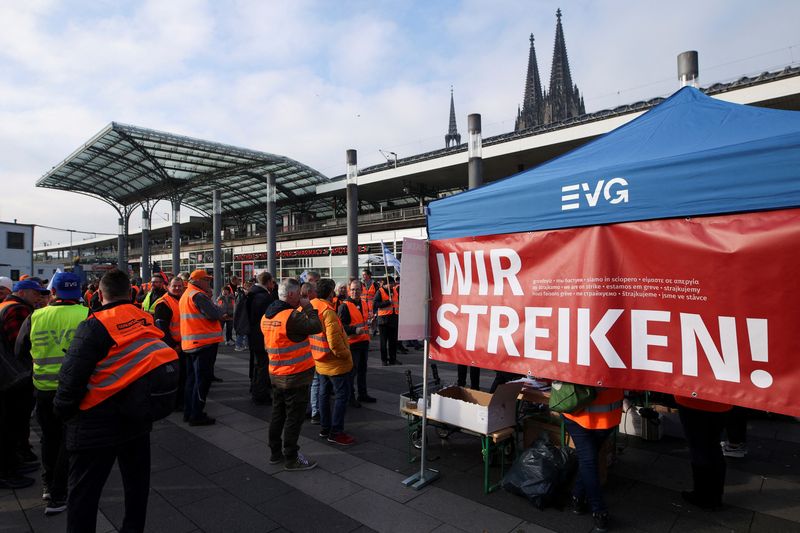BERLIN (Reuters) - Rail workers went on strike across Germany on Friday, mostly bringing national operator Deutsche Bahn's services to a halt in the morning hours, as protests over pay in Europe's largest economy widened.
Germany has witnessed some of its most disruptive strikes in decades since last year, when the war in Ukraine sent energy and food prices soaring, leading to union pressure for wages to rise in line with living costs.
High inflation has also exacerbated labour problems in sectors like aviation that have faced a difficult transition following the COVID-19 pandemic.
The rail workers' action was set to coincide with a walkout at four German airports - Duesseldorf, Hamburg, Cologne Bonn and Stuttgart - by members of the Verdi union, after around 700 departures were cancelled by strikes at the first three locations on Thursday.
The rail workers' strike, organised by the EVG union, started at 3 a.m. (0100 GMT) and ended at 11 a.m, although nationwide disruptions to the train network were expected for the whole day.
According to EVG, around 22,500 Deutsche Bahn employees took part in the strike, which impacted national rail and another 49 railway companies.
"This is quite irritating because we travelled a long way to be at the station," said Robert Auracher, a traveller stranded at Munich central station.
State-owned Deutsche Bahn said commuter trains started running again after the end of the strike, with long-distance connections set to resume at around 1 p.m..
Rail freight traffic was also at a standstill.

The EVG, which is negotiating on behalf of 230,000 workers, is seeking a 12% wage increase, or at least an additional 650 euros ($715) per month. Deutsche Bahn has offered 5% and one-off payments of up to 2,500 euros.
($1 = 0.9118 euros)